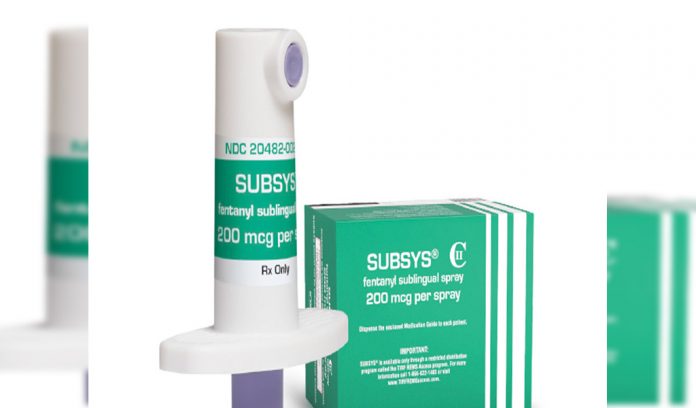
Another Big Pharma company has been caught in the act – again — by government authorities of cheating its number one constituents – its consumers!
Insys Therapeutics has been incriminated of creating “fake cancer patients” to help boost the sales of its drug Subsys. Use of the drug Subsys by cancer patients was approved five years ago by the U.S. Food and Drug Administration (FDA). Subsys is an under-the-tongue spray for cancer patients who experience chronic pain.
The drug itself contains fentanyl, a highly addictive kind of opioid drug that is said to be 100 times more powerful than morphine and 50 times more powerful than heroin. Unfortunately, fentanyl has been getting some negative feedback for the past few years because of reported deaths to those who dare to mix it with heroin.
So when Insys marketing executives created a complicated scheme to generate supposedly “fake cancer patients” in order to generate sales, the U.S. Senate Committee on Homeland Security and Governmental Affairs issued a report about it after a consumer fraud lawsuit was filed against Insys and 3 doctors by Arizona Attorney General Mark Brnovich.
The lawsuit by Brnovich called for action against “unethical and greedy behavior in the pharmaceutical industry that is fueling the opioid crisis in our state”.
Corporations’ responsibility to their customers
Senator Claire McCaskill of Missouri who heads the Insys investigation declared that the company pressured its employees and the medical industry to promote more use of the drug among target consumers. One of the ways that Insys did this was to provide kickbacks to insurance companies and doctors. Somewhere along the line, medical records of sales were falsified.
The Senate report said that under the scam, participating insurance companies would only pay for drugs of patients that had an active cancer diagnosis, was prescribed an opioid, and was prescribed Subsys to treat pain that the other opioids couldn’t fix.
Several Federal prosecutors in Boston also implicated six former Insys managers and executives including its former CEO Michael Babich. Prosecutors added that Babich and others bribed medical practitioners to prescribe the drug Subsys to non-cancer patients even though it was specially designed only for cancer sufferers. This was usually implemented through marketing events and speaking engagements with speakers’ fees awarded by Insys to the invited sources.
Reuters was quoted saying that Insys prepared the speaker program to educate medical and healthcare individuals about Subsys, but its real purpose is to reward healthcare providers to recommend the drug.
The Big Pharma industry’s reputation has been tarnished by this event – and so blatantly. A national survey conducted by Kantar Media, a healthcare industry firm, showed that only 22% of consumers interviewed trust drug companies that advertise the drugs they manufacture.
Moreover, Kantar’s 2017 MARS Consumer Health Study indicated that only 28% of surveyed believe pharma ads actually increase their knowledge about their condition, and the drugs and treatment they’re advised to take.
Lastly, only 44% of surveyed agree that prescription drugs are a more effective solution than over-the-counter drugs.








